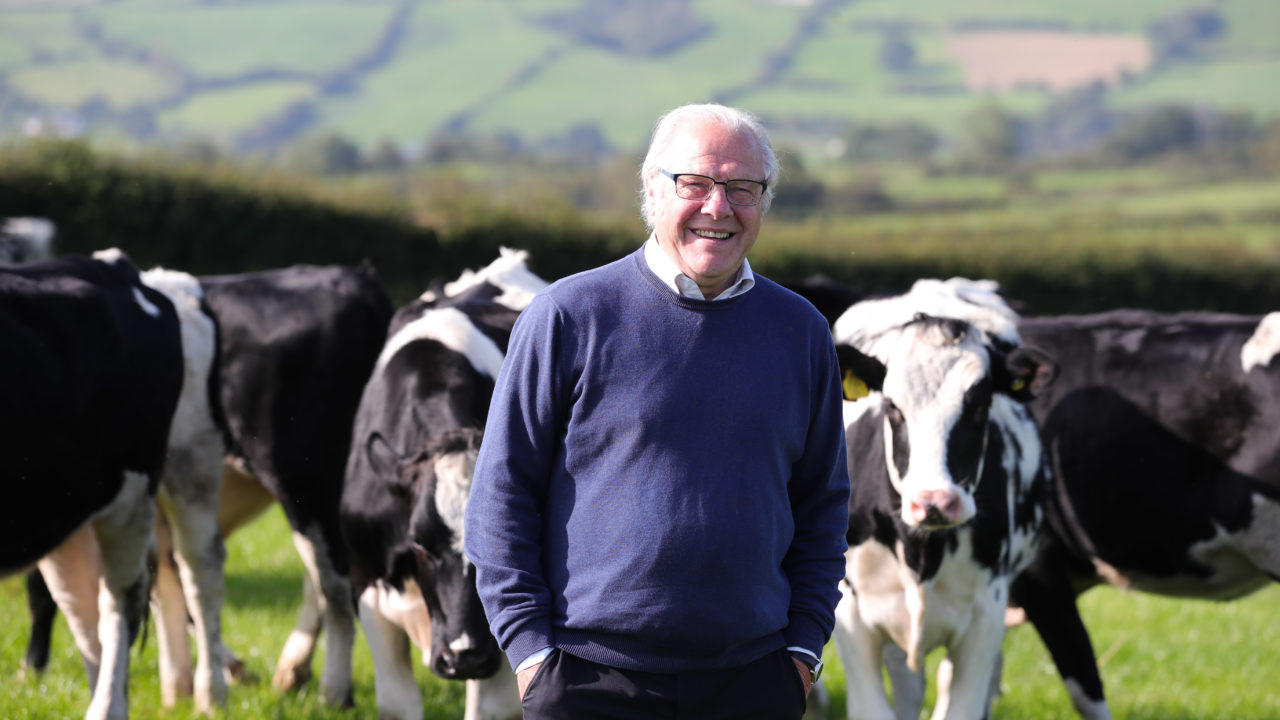The Dairy Council for Northern Ireland is it to take part in a new three-year sustainable dairy programme.
The programme, which is jointly funded by the EU, will highlight the important strides the sector is making to improve its environmental credentials, as well as the importance of dairy for our economy and nutritional well-being.
The programme is being delivered in partnership with the European Milk Forum, with funding from the European Union and will facilitate knowledge transfer with other participating dairy associations in Belgium, France, Denmark and Ireland and feed into papers and events hosted on a European level.
Local farmers and processors have already reduced the carbon footprint of a litre of milk by 34% since 1990 but aim to continue to improve its efficiency and sustainability.
Dairy farms are already involved in research programmes run by the Agri-Food and Bioscience Institute (AFBI) to improve their environmental sustainability including slurry application, land and herd management and through constantly improving efficiency.
Education programmes at the College of Agriculture Food and Rural Enterprise (CAFRE) ensure research findings on aspects such as slurry application, housing design and herd and land management are shared with local dairy as the basis for tackling climate change.
The dairy sector is also an important element of the Northern Ireland economy. It sustains the livelihoods of around 3,200 dairy farming families and over 2,200 employees of dairy processors around Northern Ireland. Worth almost £1.5 billion annually, the dairy sector is an important pillar in rural communities throughout Northern Ireland.
Informing policy-makers
Dairy Council for Northern Ireland chief executive Dr. Mike Johnston said: “With the Climate Change Bill, Energy Strategy, Green Growth Strategy, and other relevant policy areas currently under consideration, this programme will help the sector to communicate how successful it has been in tackling climate change and provide policymakers with access to valuable resources to inform future decisions.”
It comes just a week after Dr. Johnston warned that Northern Ireland’s dairy industry would have to be slashed to 1946 production levels in order to meet the net-zero by 2045 target set out in the private member’s Climate Change Bill.
“We have gained a wealth of knowledge through AFBI and CAFRE dairy research programmes, and it is important that a scientific approach is taken to developing mitigation measures that are appropriate for our local conditions,” Dr. Johnston added.
“Efforts to improve sustainability at farm and processing level should therefore be co-designed in partnership with the sector and those who have been studying the sustainability of our dairy farms for decades.”
Dr. Johnston added that there were also dietary benefits to consuming dairy produce.
“We also have to be mindful of the various elements of a sustainable diet. The UN’s four dimensions show that we cannot focus on environmental impact in isolation: we must also consider its nutritional value, as well as the impact on the local economy and the cultural aspects of our diet,” he said.
“In Northern Ireland the dairy food group is the largest contributor to intakes of calcium, iodine, vitamin B2 and vitamin B12, supplying around a third for adults and even more in children and teenagers. Dairy, therefore, has an important role to play in providing a sustainable diet that is healthy, acceptable and affordable.”
